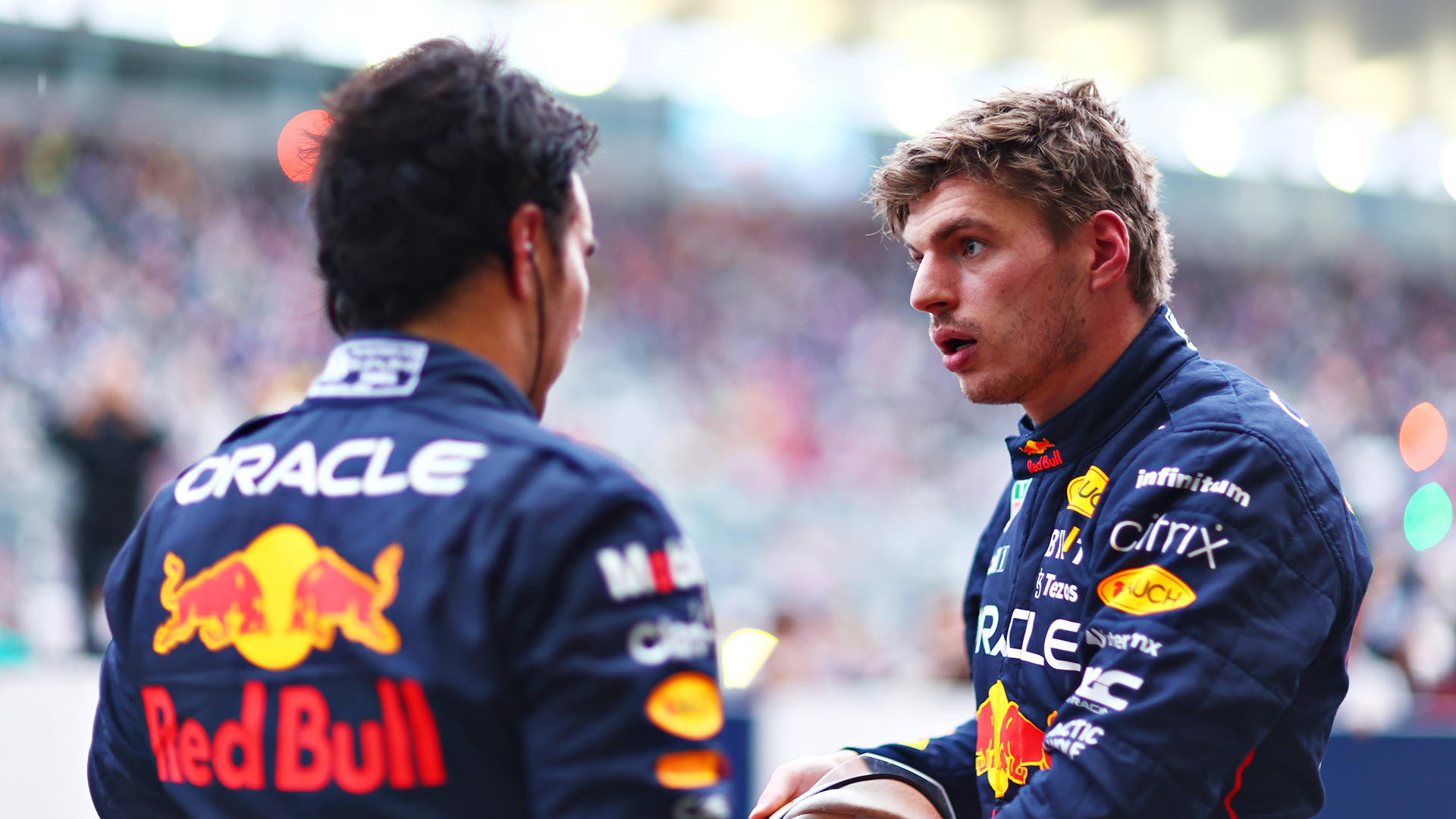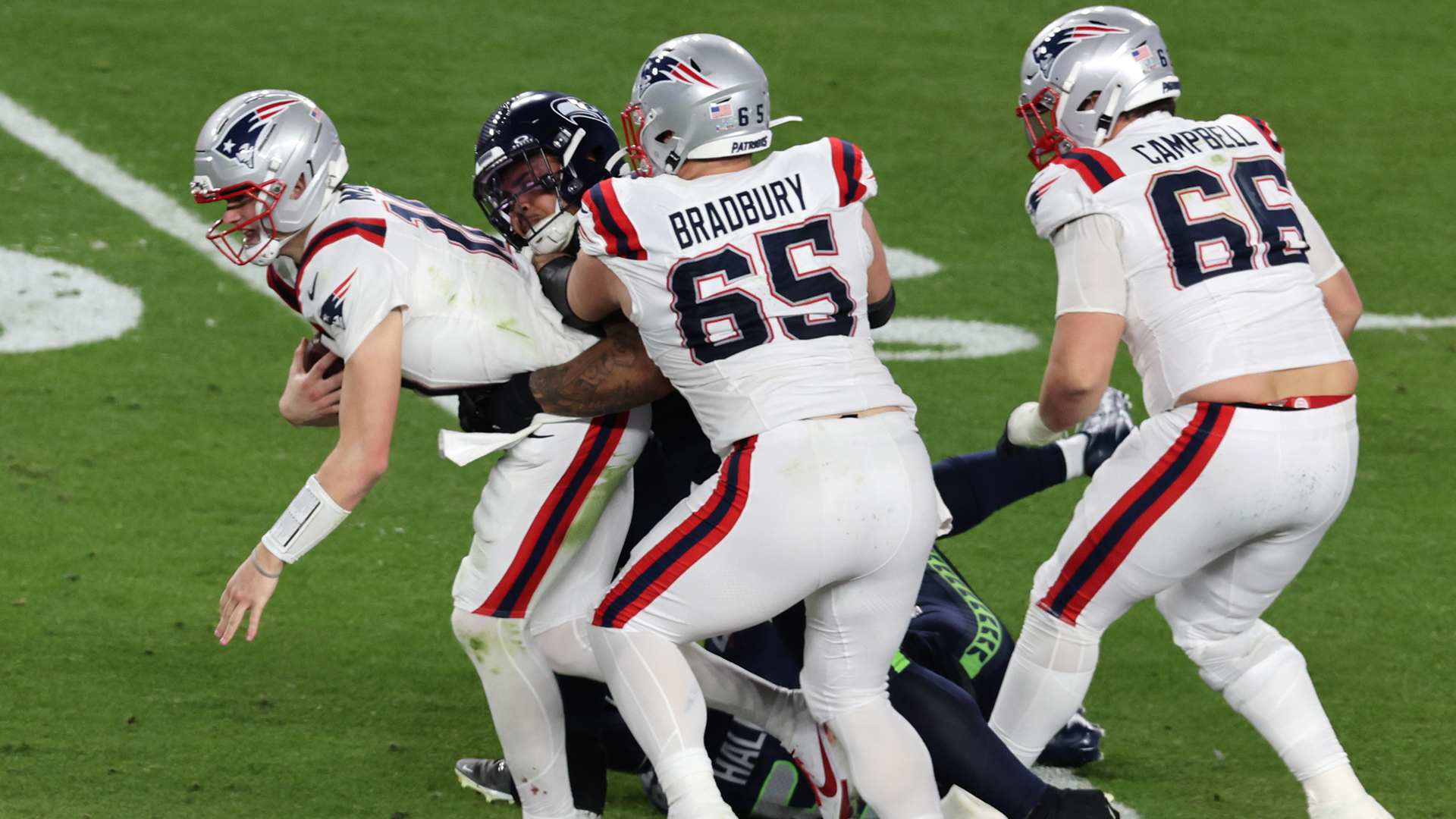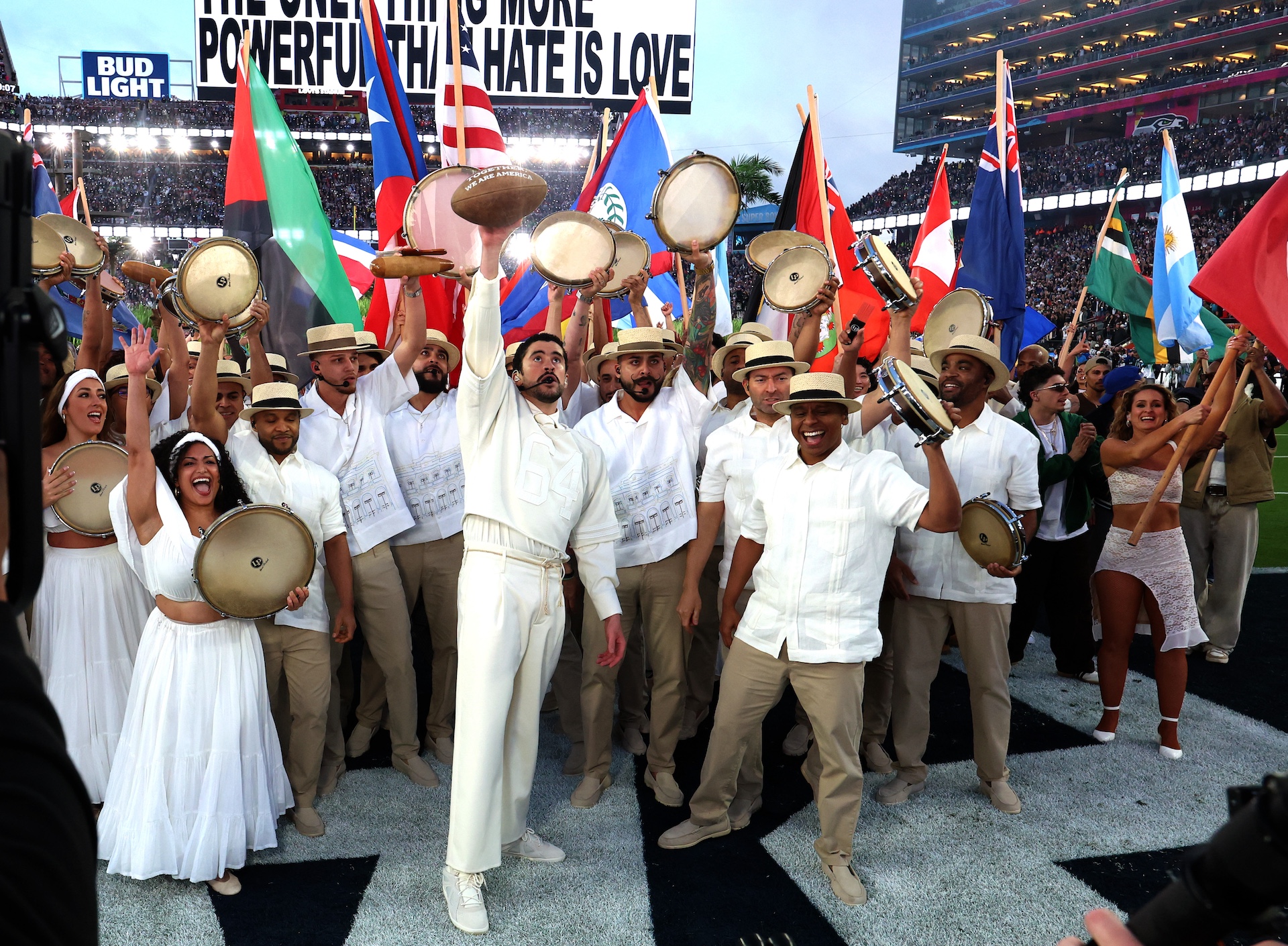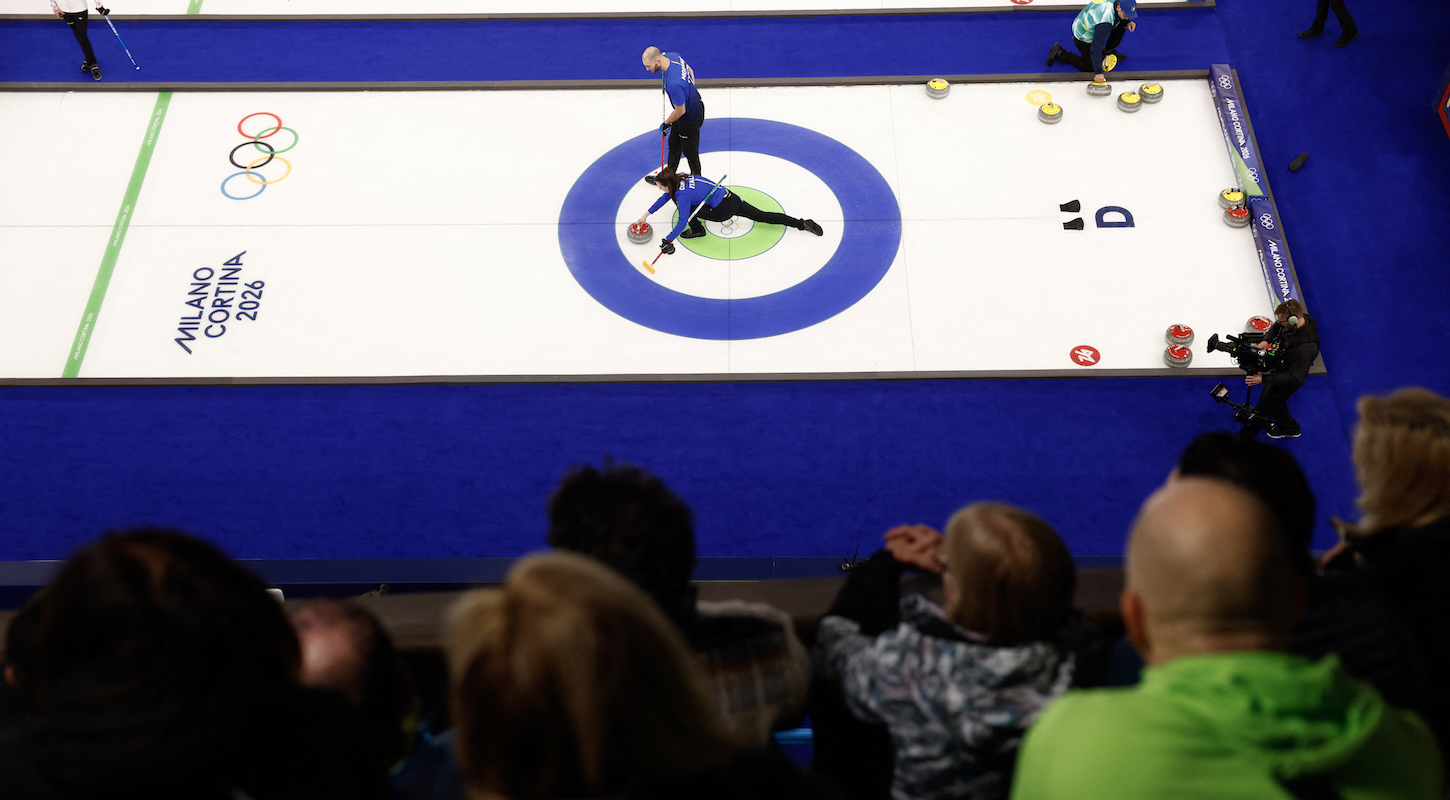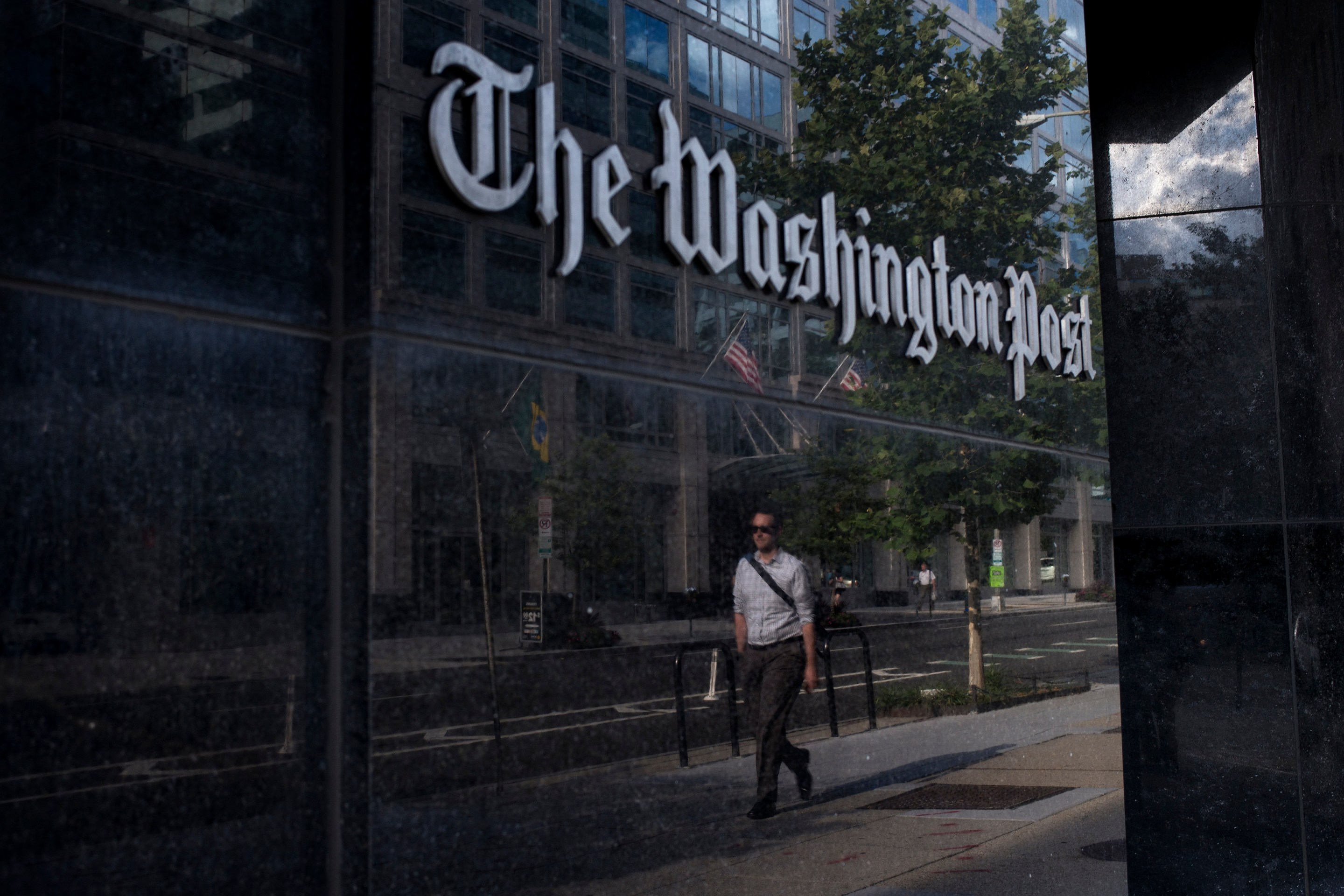Will Max Verstappen ever win a Formula 1 drivers' championship in normal fashion? They say three's a trend, but two is looking like enough to spot a pattern. After 2021's controversial ending on the final race of the year, Verstappen claimed his second consecutive title this weekend in different, but echoingly janky, circumstances. There was no real controversy here except for one of timing and rule interpretation, but for the second year in a row, Verstappen's ultimate achievement is drowned out by a mess of the FIA's making.
First, though, there was a race to be run. Or so everyone thought. Like at last week's Singapore Grand Prix, the Japanese Grand Prix ran into that most fickle of entities: Mother Nature. Prior to the scheduled race start, a veritable fuck-ton of rain began to drop on the Suzuka track, delaying the beginning of the race by over two hours. This immediately became a Very Big Problem.
The most pressing issue was time. Races can only run up to three hours from the scheduled start, a precaution that theoretically prioritizes driver safety, but is more likely due to TV scheduling; the networks do not want to cover hours upon hours of Formula 1, no matter how popular the sport has gotten. This meant that by the time the race got going at 4:15 p.m. local time, two hours and fifteen minutes after it was supposed to, it was guaranteed to only run for about 48 minutes, rather than the full 53 laps. After a red flag paused the race just two laps in, the actual racing time shrank even further.
From the outset, the Sky Sports commentary team was certain the new shortened race rules would be in play. Their understanding was this: Because the race would not run its full duration, only a fraction of the total points would be awarded, making it mathematically impossible for Verstappen to clinch the title on Sunday. This was repeated ad nauseum for the entire race, so viewers expected the title decider to come in a future race.
Let's look at that regulation, though: Article 6.5 of the FIA regulations states that full points will not be awarded if a race is stopped due to rain and is not resumed. This came out of 2021's Spa Grand Prix, where the drivers completed one lap before the race was called off. The issue here, and it's one that would play into the chaotic post-race debacle, is that the Japanese GP was, in fact, resumed, and so the full tally of points was on the table. This meant that despite what the commentators kept repeating, Verstappen could win the title right then and there, so long as he won and Charles Leclerc did not finish in second place. If the latter happened, the coronation would likely be pushed to Austin for the United States Grand Prix on Oct. 23.
You could argue this was a Sky problem, rather than an FIA one, but the governing body's job is to not just make the rules but also communicate them clearly to competitors and viewers at home. Otherwise, you get a moment like the one in the cooldown room, where Verstappen still was not sure that he had won his second world title:
"Champion? Not Champion?" 🤔
— Formula 1 (@F1) October 9, 2022
Even Max had to be convinced! 😃#JapaneseGP #F1 pic.twitter.com/kiJXb283RN
For his part, Verstappen took care of business. After nearly losing the lead in the first turn of the race, the Dutch champion-to-be cruised to the biggest win in Suzuka history, and in only half a race at that: by the end of Sunday's slippery drive, Verstappen had racked up a 26.763-second victory over Leclerc. For reference, Leclerc was closer to eighth place than he was to first. Still, though, with Leclerc somehow fighting off Sergio Pérez for the back half of the race as his tires degraded at nearly comical levels, everyone involved accepted that Verstappen would have his moment in Texas.
Just kidding. On the very last turn of the race, Leclerc defended a bit too hard against Pérez, and completely cut the entire chicane, going off track before returning ahead of the Mexican driver to finish in second. The FIA stewards noted the incident to investigate after the race, whereupon they handed Leclerc a five-second penalty, putting him in third place behind Pérez and giving Verstappen, officially, his second title.
Given the confusion and wait for the stewards' decision, Verstappen was informed of his title win during the post-race interviews ... and not even his own, at that. Instead, while Pérez was being interviewed as if he had finished third, Sky interviewer Johnny Herbert interrupted and told Verstappen he had won. As you can see in the photo above, it was quite a shock and an anticlimactic one to boot:
The moment Max found out he was world champ 🙌#JapaneseGP #F1 pic.twitter.com/nQD8oVaplD
— Formula 1 (@F1) October 9, 2022
Let's get one thing out of the way: The method of winning the title likely won't bother Verstappen, who has now both broken the Mercedes hegemony and dominated the field in back-to-back seasons. Despite how you may feel about last year's ending, and despite how boring Verstappen has made the title race by sheer talent this season, he has fully ascended to the level that he was always expected to reach. Only 17 drivers have won multiple world titles in F1 history, and with the retirement of Sebastian Vettel coming after this season, Verstappen will be one of only three drivers on the 2023 grid with multiple world titles to his name. This season belonged to the Dutchman, but he deserved a better ending for all of his work.
Instead, though, here we are again, with a mess of an ending that feels incompatible with the high stakes and drama of Formula 1. Instead of celebrating like a mad man as he crossed the line, Verstappen's victory is overshadowed by regulation confusion, as well as Pierre Gasly's close call with a tractor on the track during a rainy safety car period.
Gasly was rightfully pissed about this, given that Jules Bianchi died on this very track, under the same circumstances in 2014. The other drivers on the grid are similarly furious at the FIA and the Suzuka organizers for letting this nearly happen again. (For its part, the FIA said it would launch an investigation into the incident.)
Speaking of investigations, Verstappen's win has yet another dark cloud hanging on it, as the FIA announced on Monday that Red Bull had been dinged for "procedural and minor overspend breaches" this season, as a result of violating the cost cap rules in place for teams. The punishment for that will come soon enough, though Sky Sports is reporting that the punishment will not be severe. Verstappen will likely remain world champion, come hell or high water. With his dominance this season, it's nothing short of deserved, but maybe, just maybe, he'll be able to win another world title without the starts and stops that came with his first two. Then again, with the FIA in charge, it's possible that the sport will be right back here next year, with some arcane rules clouding a full-blown and uncontroversial world championship.
